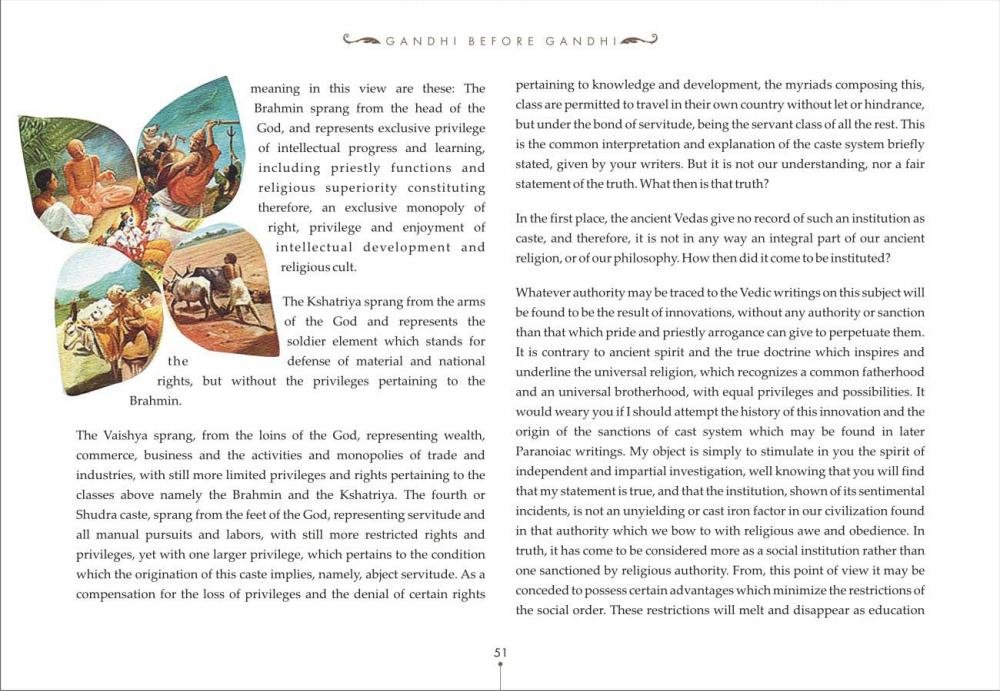________________
GANDHI BEFORE GANDHI
meaning in this view are these: The Brahmin sprang from the head of the God, and represents exclusive privilege of intellectual progress and learning, including priestly functions and religious superiority constituting therefore, an exclusive monopoly of right, privilege and enjoyment of intellectual development and religious cult.
pertaining to knowledge and development, the myriads composing this, class are permitted to travel in their own country without let or hindrance, but under the bond of servitude, being the servant class of all the rest. This is the common interpretation and explanation of the caste system briefly stated, given by your writers. But it is not our understanding, nor a fair statement of the truth. What then is that truth?
In the first place, the ancient Vedas give no record of such an institution as caste, and therefore, it is not in any way an integral part of our ancient religion, or of our philosophy. How then did it come to be instituted?
The Kshatriya sprang from the arms of the God and represents the
soldier element which stands for the
defense of material and national rights, but without the privileges pertaining to the Brahmin
The Vaishya sprang, from the loins of the God, representing wealth, commerce, business and the activities and monopolies of trade and industries, with still more limited privileges and rights pertaining to the classes above namely the Brahmin and the Kshatriya. The fourth or Shudra caste, sprang from the feet of the God, representing servitude and all manual pursuits and labors, with still more restricted rights and privileges, yet with one larger privilege, which pertains to the condition which the origination of this caste implies, namely, abject servitude. As a compensation for the loss of privileges and the denial of certain rights
Whatever authority may be traced to the Vedic writings on this subject will be found to be the result of innovations, without any authority or sanction than that which pride and priestly arrogance can give to perpetuate them. It is contrary to ancient spirit and the true doctrine which inspires and underline the universal religion, which recognizes a common fatherhood and an universal brotherhood, with equal privileges and possibilities. It would weary you if I should attempt the history of this innovation and the origin of the sanctions of cast system which may be found in later Paranoiac writings. My object is simply to stimulate in you the spirit of independent and impartial investigation, well knowing that you will find that my statement is true, and that the institution, shown of its sentimental incidents, is not an unyielding or cast iron factor in our civilization found in that authority which we bow to with religious awe and obedience. In truth, it has come to be considered more as a social institution rather than one sanctioned by religious authority. From this point of view it may be conceded to possess certain advantages which minimize the restrictions of the social order. These restrictions will melt and disappear as education




